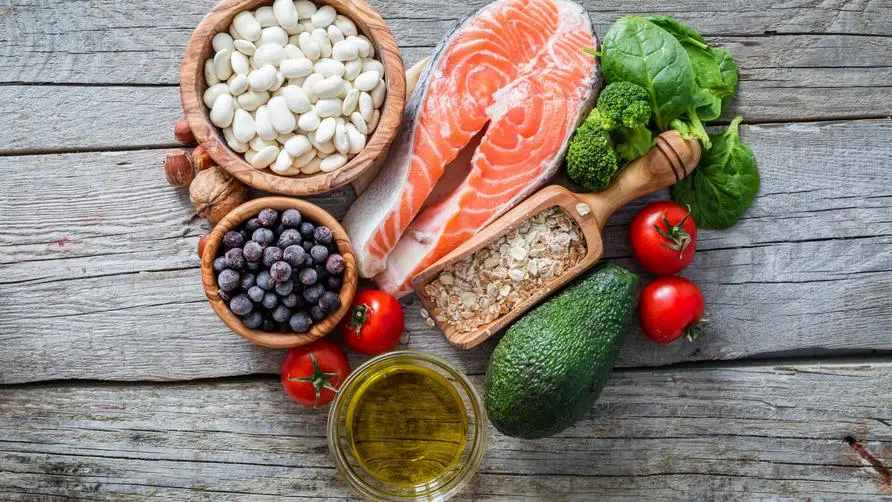Have you eaten wrong before? American Heart Association announces "Top 10 Heart-Protect Diets" that patients with cardiovascular disease should know more about

A healthy diet is fundamental to preventing cardiovascular disease. Considering the connection between healthy eating and reducing cardiovascular disease, the American Heart Association updated its dietary guidelines for the first time in 15 years and published them in the journal Circulation. The American Heart Association has excerpted 10 dietary recommendations based on past research and medical records of patients with cardiovascular disease. People can make adjustments based on their personal health:
Achieve caloric balance. When caloric intake exceeds caloric expenditure, weight will easily increase and lead to obesity. The American Heart Association points out that weight gain is a risk factor for cardiovascular disease and recommends that patients discuss their daily calorie intake with a nutritionist or physician, and pair it with appropriate exercise to achieve a balance between the calories consumed and burned.
Eat more fruits and vegetables. The American Heart Association points out based on previous research that eating fruits and vegetables of different types and colors is positively correlated with a lower risk of cardiovascular disease and death. You should consume at least 5 servings of fruits and vegetables every day to “diversify” the nutrients in your body and improve cardiovascular health.
Choose whole grain foods. The American Heart Association believes that whole grains are rich in vitamin B and protein. Usually eating whole grains (such as whole wheat bread or brown rice) instead of refined grains (such as white toast or white rice) can reduce the risk of cardiovascular disease, heart disease, Stroke is linked to the risk of diabetes.
Choose good protein. The American Heart Association recommends that eating 2-3 servings of oily fish per week, along with moderate amounts of nuts and beans, and eating only low-fat, unprocessed meats can help lower the incidence of cardiovascular disease. In addition, if you are worried about obesity due to drinking too much full-fat dairy, you can choose low-fat dairy or yogurt instead.
Use vegetable oils. Unsaturated fatty acids in vegetable oils (such as olive oil, canola oil) can replace saturated fatty acids (such as fats in red meat, coconut oil, or palm oil) as the body’s oil supplement source. However, vegetable oil is still a fat, and its use needs to be considered based on personal eating habits.
Avoid processed foods. Eating too much processed meat may be linked to higher rates of obesity, diabetes, and heart disease. The American Heart Association states that as much as possible, avoid processed meats, frozen foods, ready-made baked goods, snacks and cookies, and replace them with unprocessed and over-packaged “original foods.”
Reduce sugar intake. Sugar and sugary drinks are considered one of the main causes of weight gain, so you should reduce your intake to avoid the risk of cardiovascular disease and weight gain. The American Heart Association believes that ingredients such as dextrose, sucrose, corn syrup, honey, maple syrup, etc. should be avoided when seen in food packaging or raw materials, and the intake should be no more than 1-2 times a week.
Choose foods with less salt. Excessive salt intake (sodium content) is the main culprit in causing high blood pressure, heart disease and stroke. This includes excessive and unnecessary salt added to restaurants and processed foods. The American Heart Association recommends that if you are concerned about consuming more sodium than your daily needs, you can carefully check the sodium content on food labels and keep your intake below 2,300 milligrams per day.
Limit the amount of alcohol you drink. The American Heart Association believes that too much alcohol can increase the risk of stroke and cardiac arrhythmia, and recommends that both men and women should reduce their intake. Men should have no more than 2 glasses of red wine per day; women should avoid more than 1 glass.
Pay attention to the principle of substitution. Excessive dietary restrictions may cause stress. The American Heart Association says that occasional unhealthy eating patterns are allowed when gathering with friends or family. However, you still need to pay attention to the “substitution problem” in your diet. After consuming a high-oil, high-sodium or high-fat diet, you can consume more vegetables, whole grains or fish in the next meal; or you can engage in moderate-intensity exercise to burn excess calories. .
In addition to dietary modifications, the American Heart Association recommends increasing the frequency and intensity of physical activity to help burn more calories. Aim for at least 150 minutes of moderate-intensity exercise per week; or 75 minutes of vigorous-intensity exercise per week.
If it is difficult to arrange a regular exercise menu, the American Heart Association says you can add some short physical activities into your daily life, such as parking farther away from work or home, taking the stairs instead of taking the elevator, etc. Ideally, exercise should be maintained at least 1-2 days per week.
Source:
Further reading:





